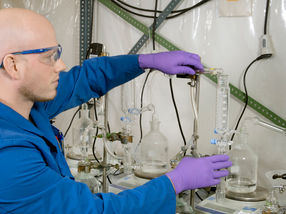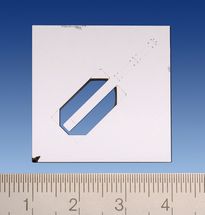WDR Research Questions Russia's Doping Campaign
Highly-effective unknown doping agents have emerged; cannot be tested
A few days before the opening of the Winter Olympics in Sochi, WDR research has revealed serious doubts about a credible anti-doping campaign in the Olympics' host country. In the ARD Sports Show and the WDR broadcast "Sport Inside", WDR reporters cover encounters of a Russian scientist with previously unknown doping agents. The internationally renowned staff of the Russian Academy of Sciences in Moscow offered to sell undercover reporters the Full Size MGF; this is being investigated for its biochemical effects in a research facility under contract to the government. The compound is twice as strong as conventional MGF, and cannot be detected by drug laboratories, said the scientists of the drug.
Initial biochemical studies in Germany have confirmed the authenticity and purity of the drug. The drug is Full Size MGF, which has only been tested in phase I animal trials. The Cologne, Germany doping expert Mario Thevis from the WADA-accredited test laboratory at the German Sports University assumes that the substance is likely to be in strong demand in the doping scene: "It is similar to the IGF 1 growth factor, and is classified as very highly effective," said Thevis to WDR. It can accelerate intensive muscle building.
Thevis warns against abuse of the drug in sports. "There is no clinical approval for this substance. Only a few tests have been done to date. It's therefore impossible to estimate the health risk to humans."
Full Size MGF cannot be detected in current analytical procedures, according to the WDR. Thus, finding it in Sochi drug laboratories is impossible at the start of the Olympic Games this week. This has also been acknowledged by the director of screening laboratories in Sochi, Grigory Rodchenkov, to WDR.
Most read news
Other news from the department politics & laws

Get the analytics and lab tech industry in your inbox
By submitting this form you agree that LUMITOS AG will send you the newsletter(s) selected above by email. Your data will not be passed on to third parties. Your data will be stored and processed in accordance with our data protection regulations. LUMITOS may contact you by email for the purpose of advertising or market and opinion surveys. You can revoke your consent at any time without giving reasons to LUMITOS AG, Ernst-Augustin-Str. 2, 12489 Berlin, Germany or by e-mail at revoke@lumitos.com with effect for the future. In addition, each email contains a link to unsubscribe from the corresponding newsletter.






































